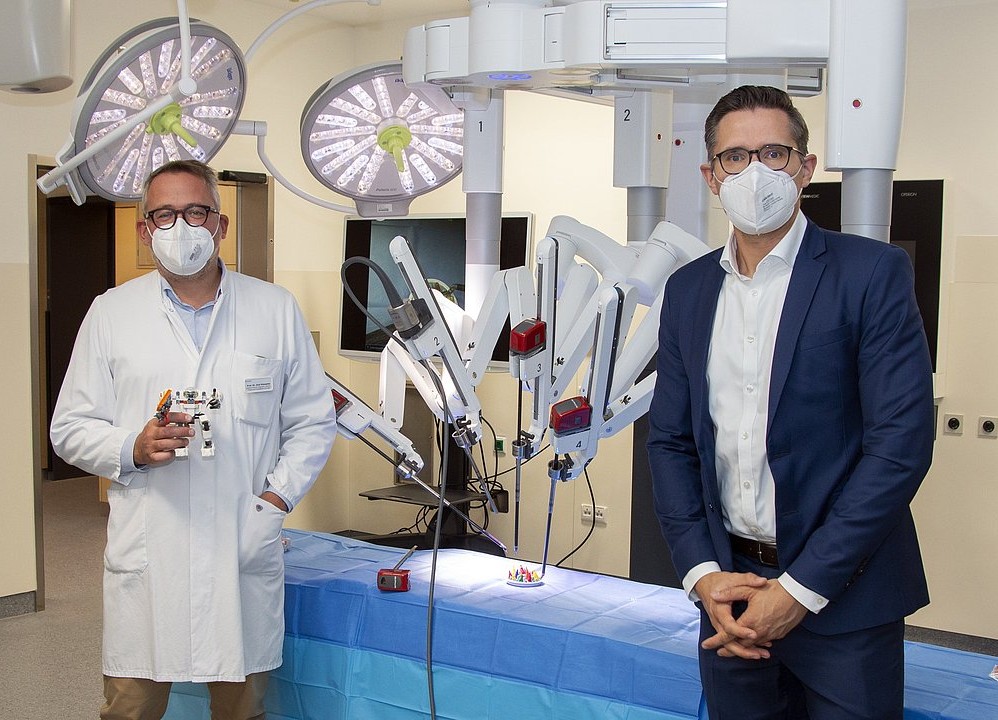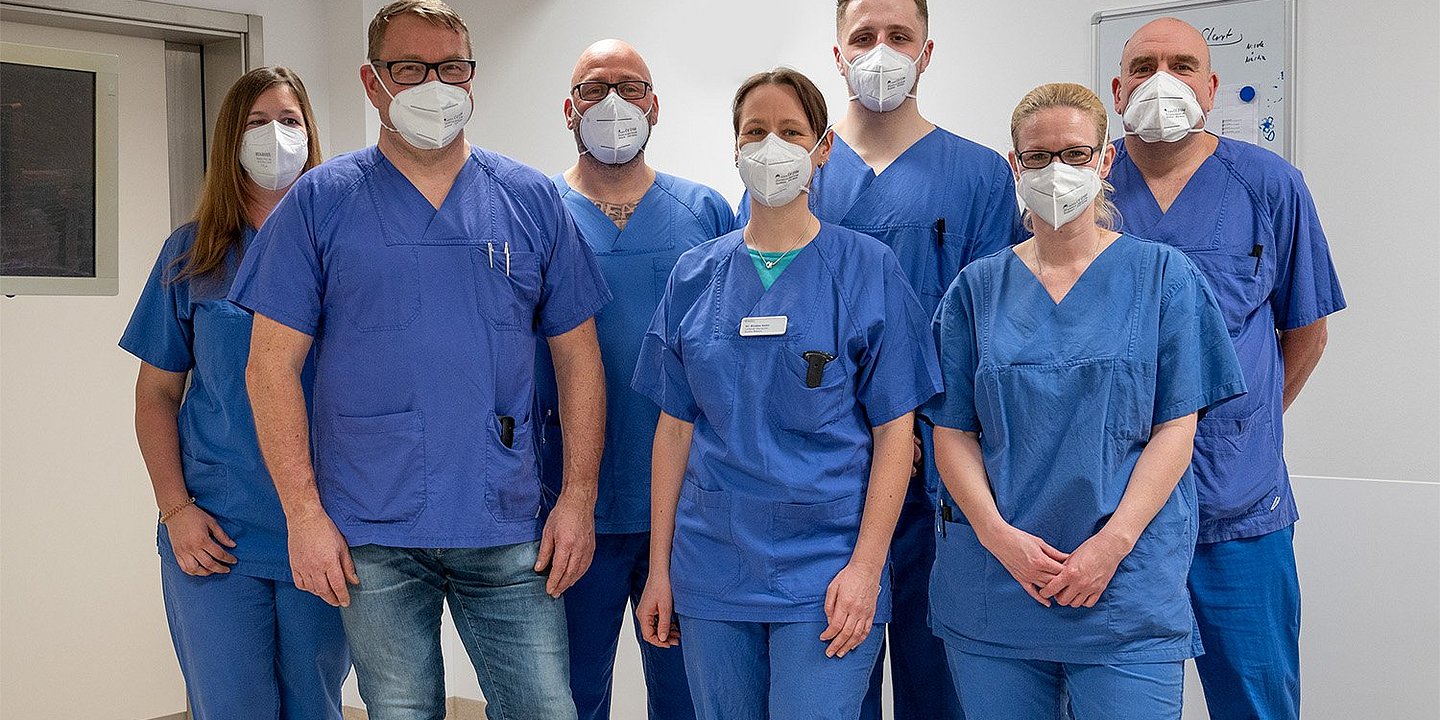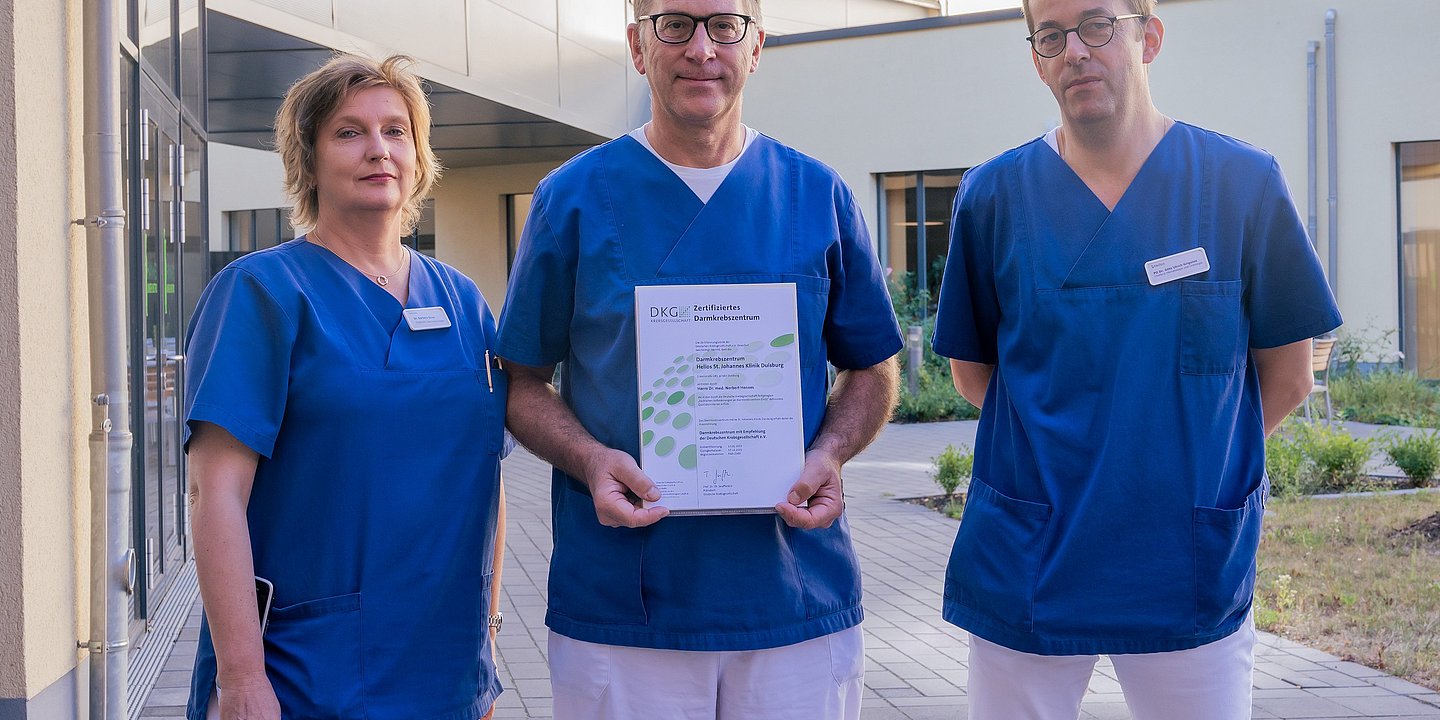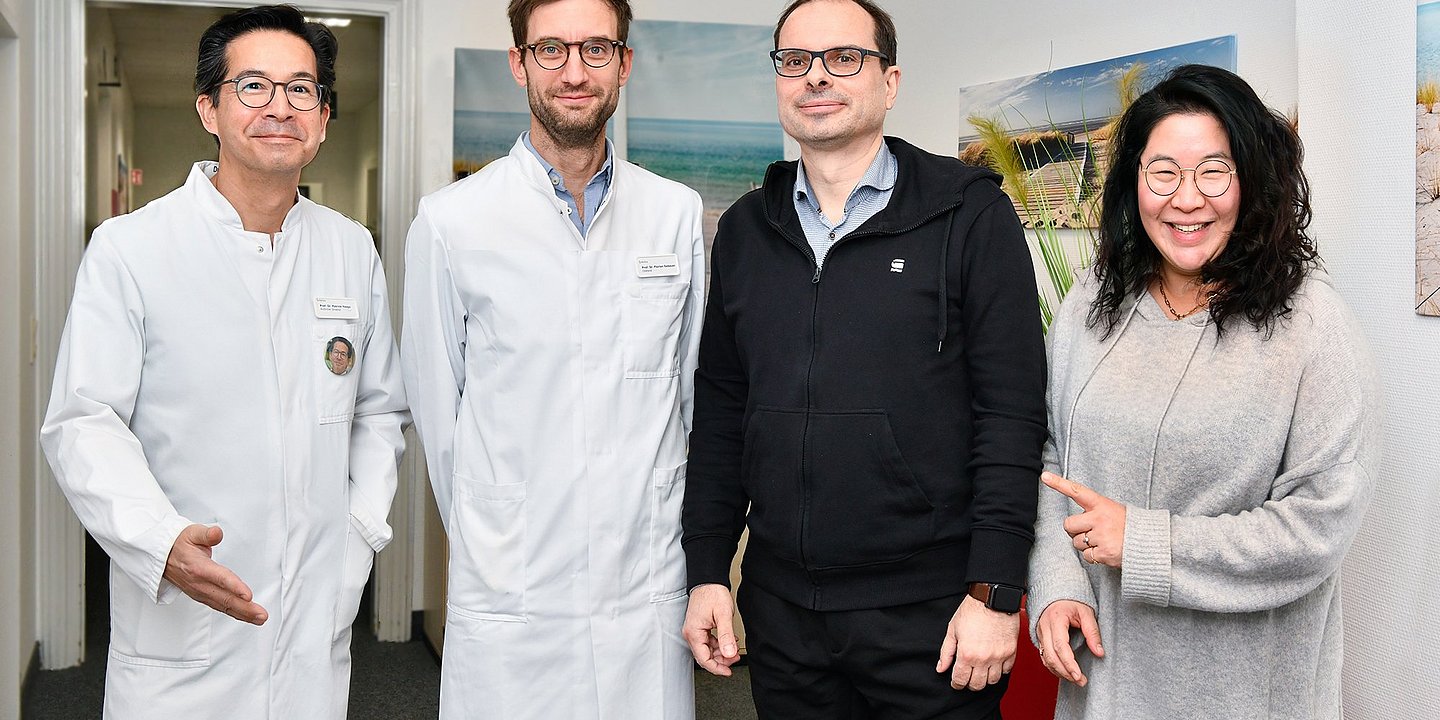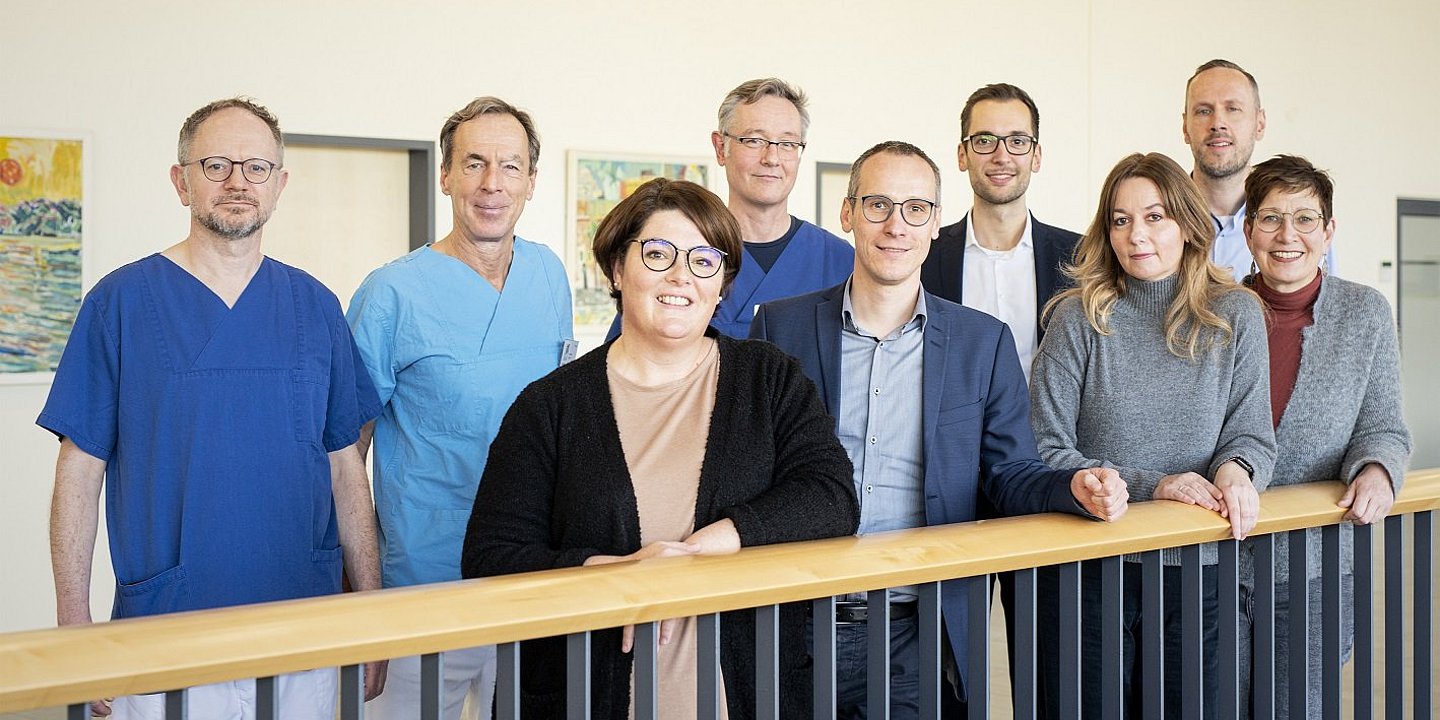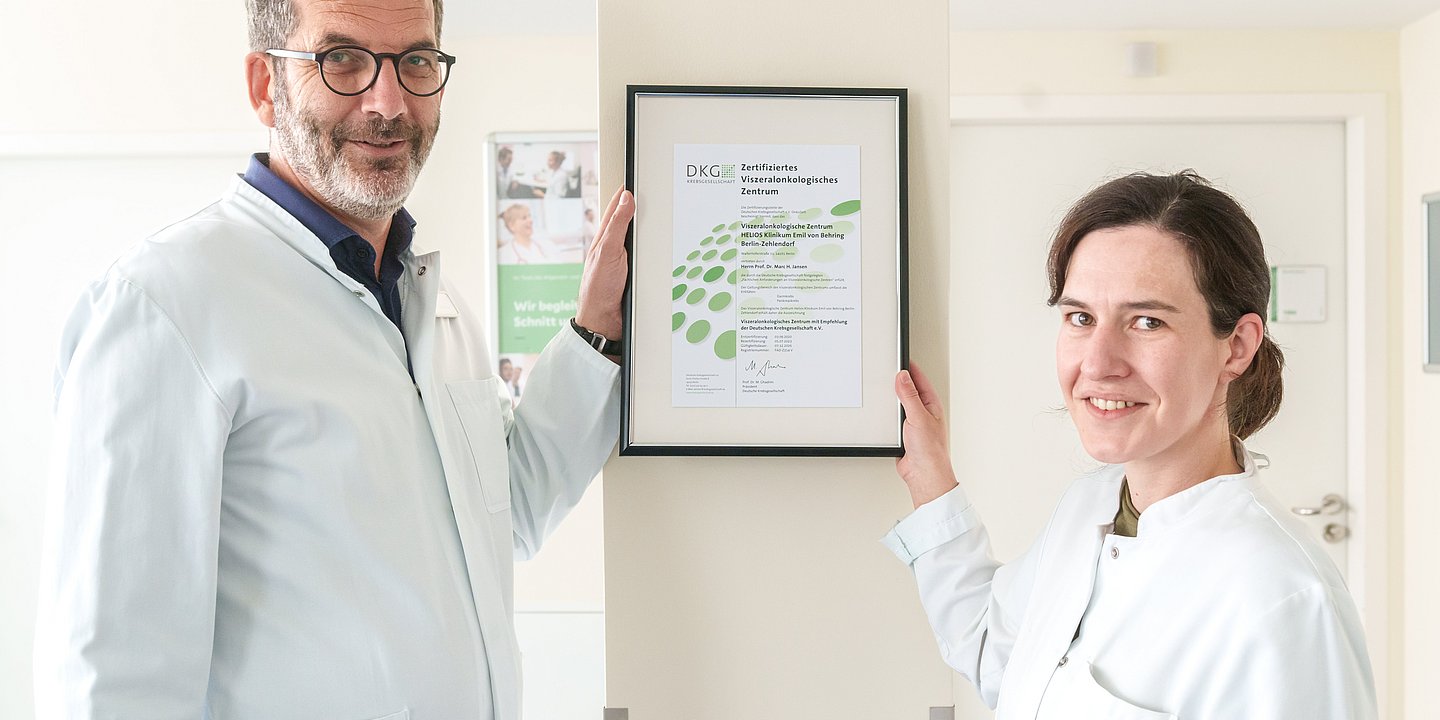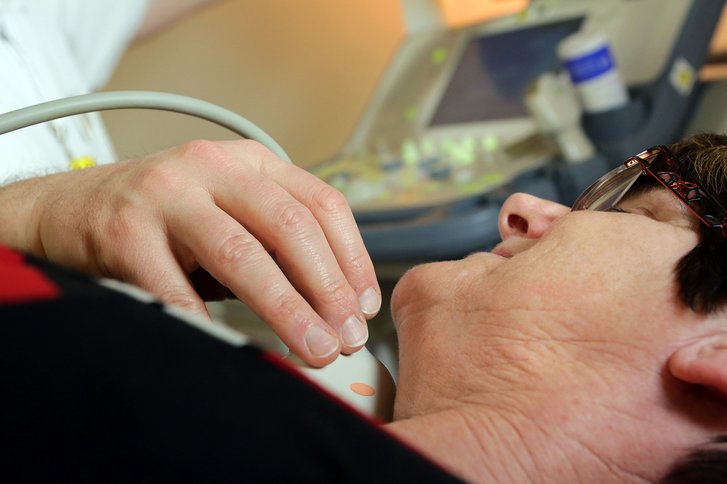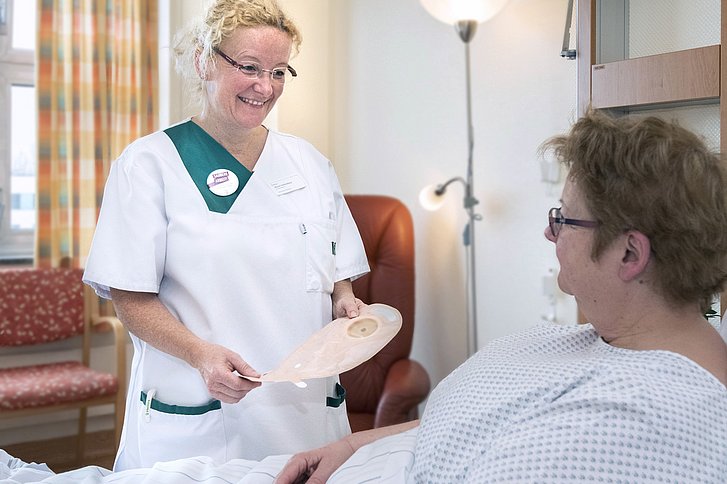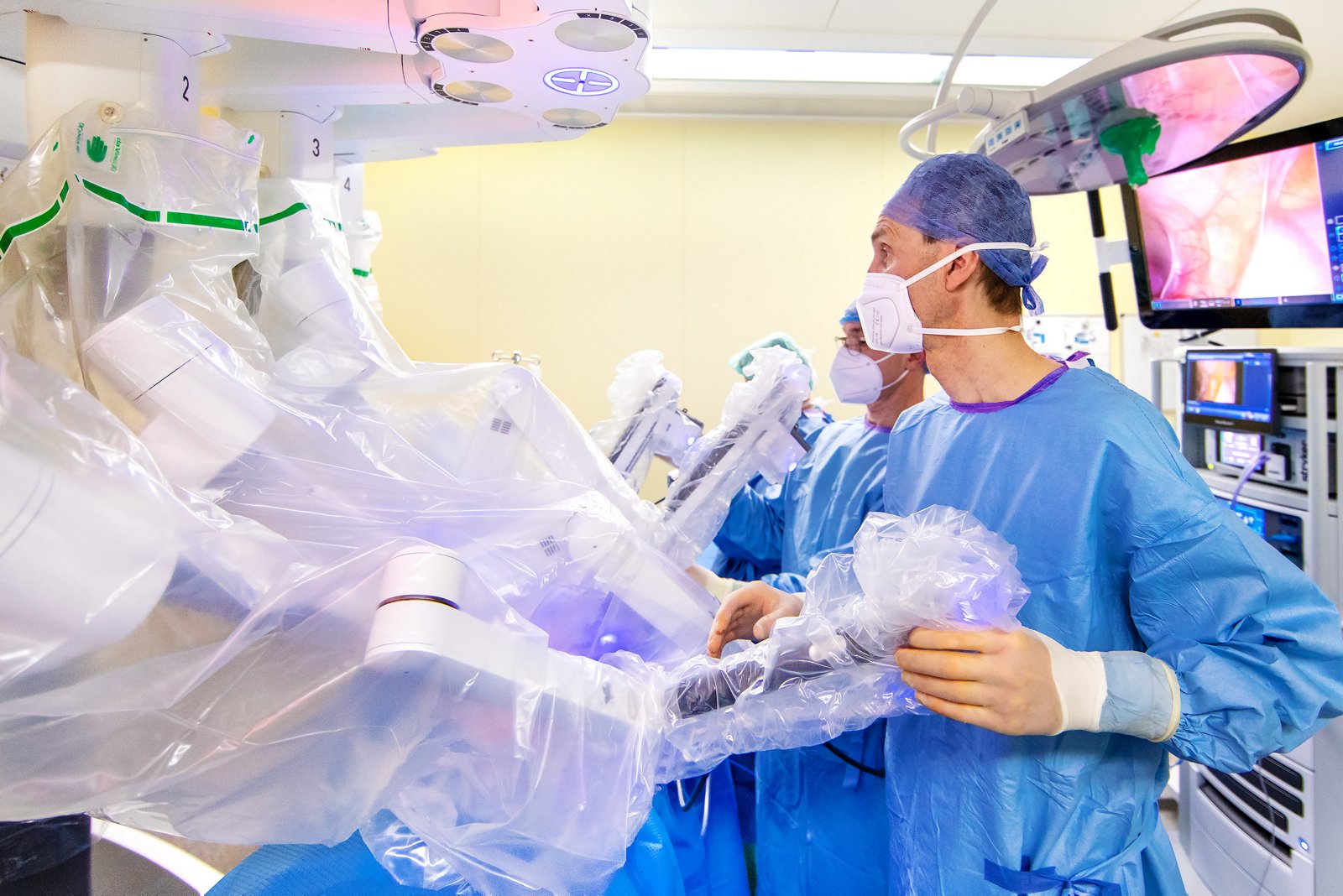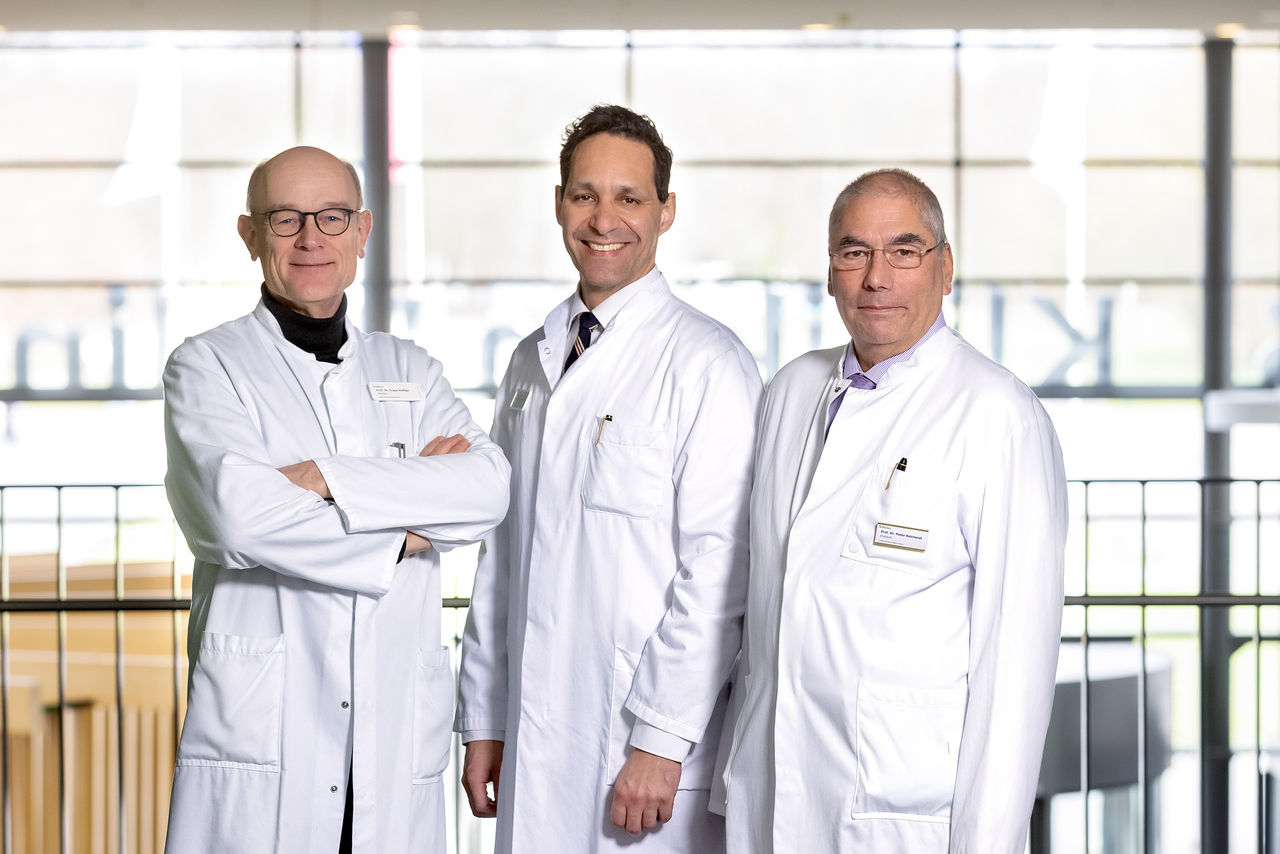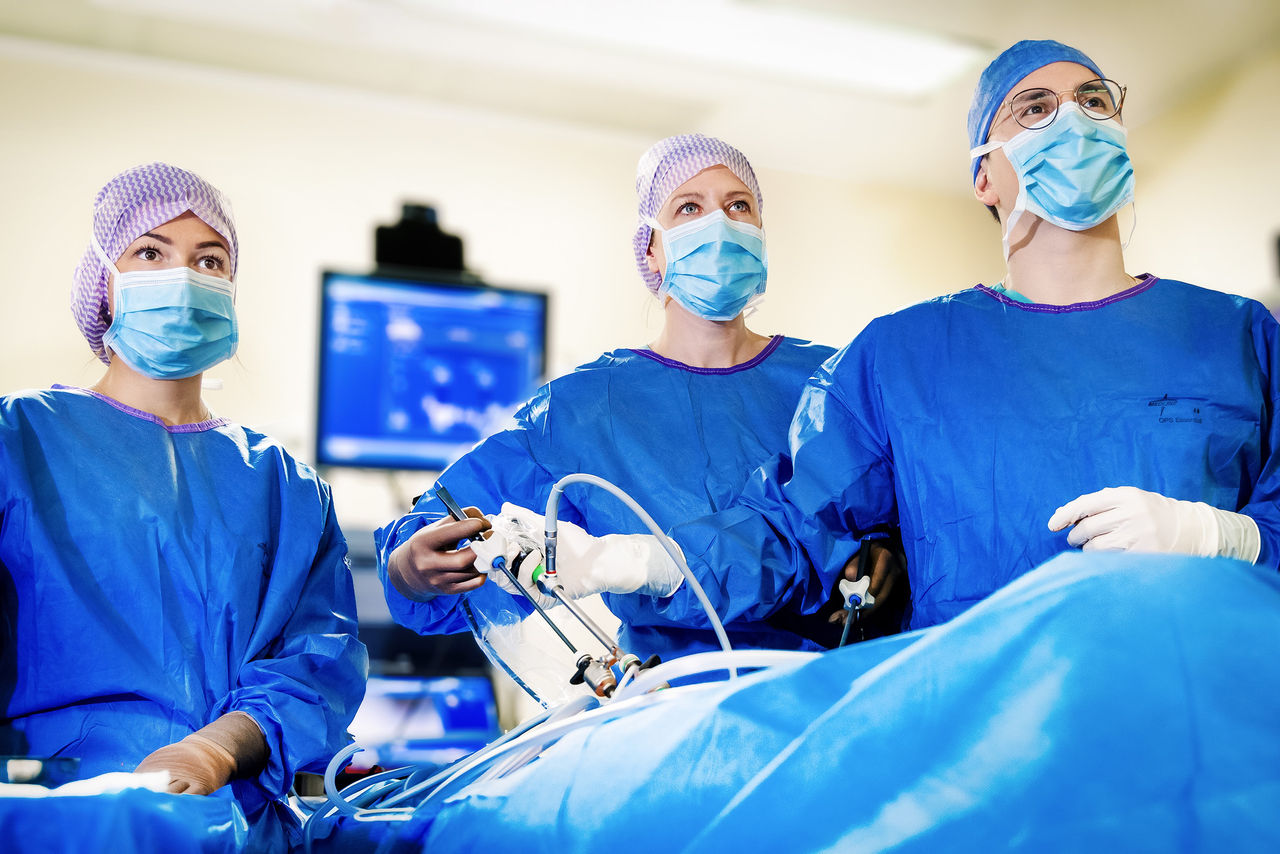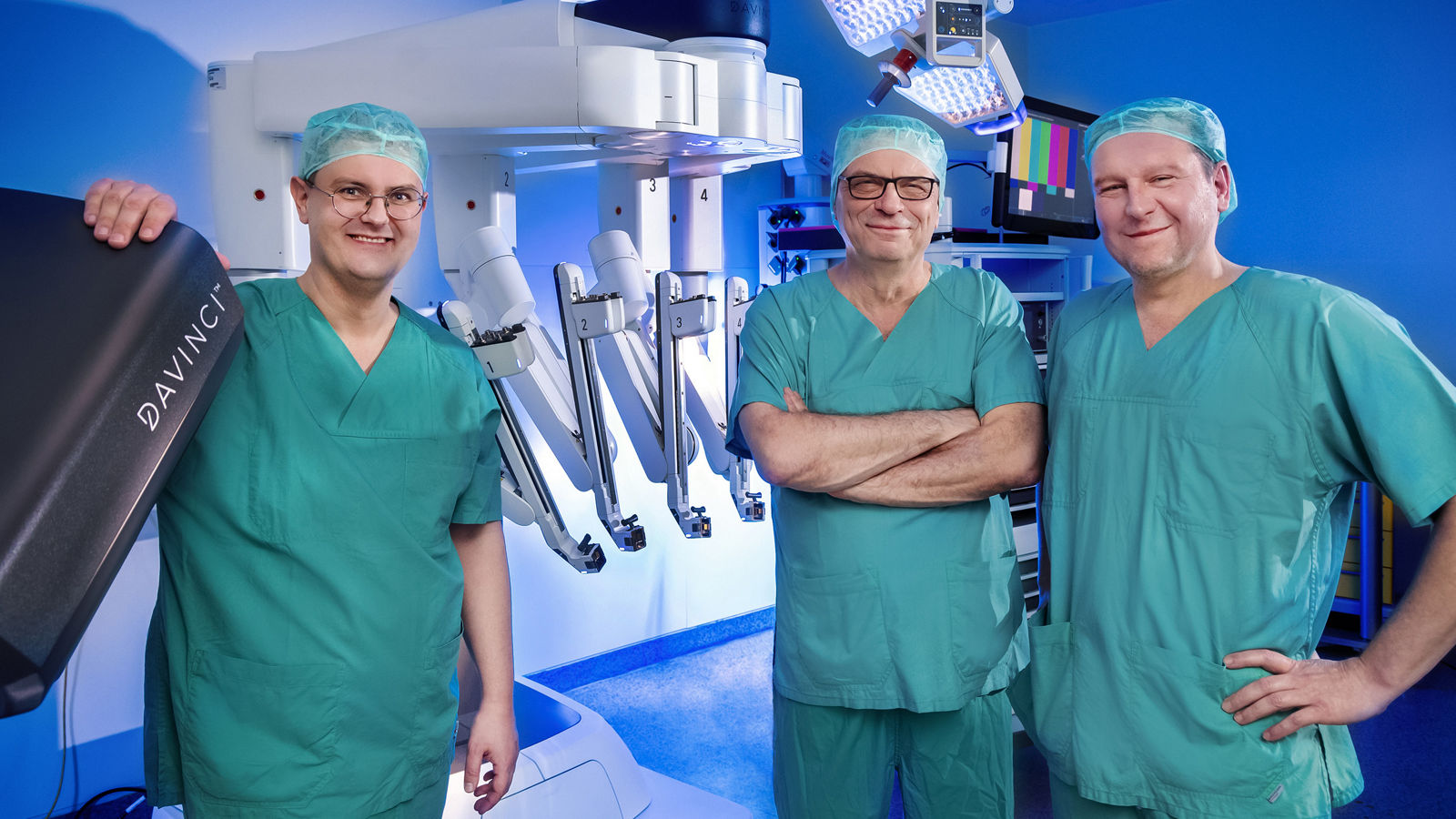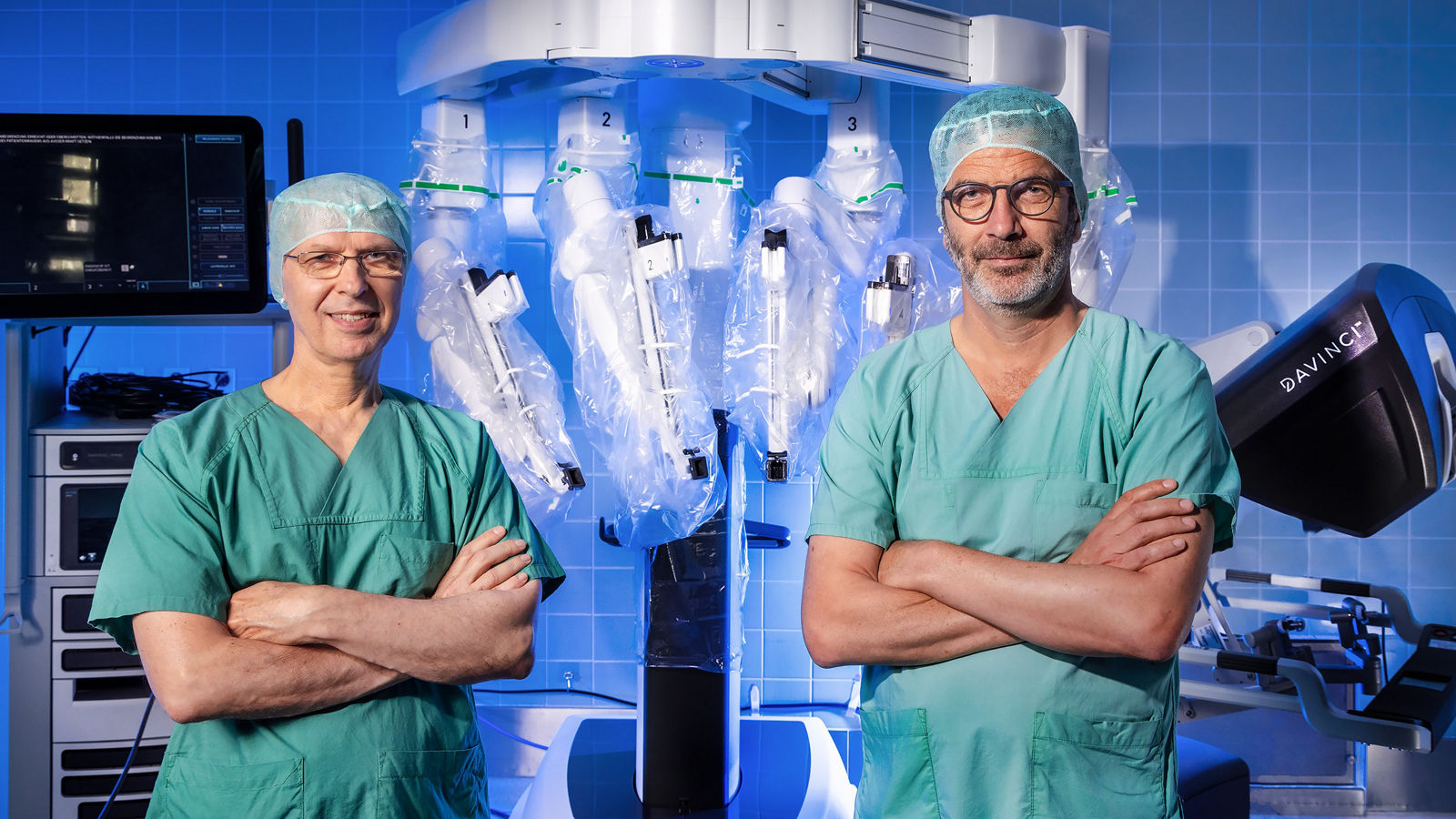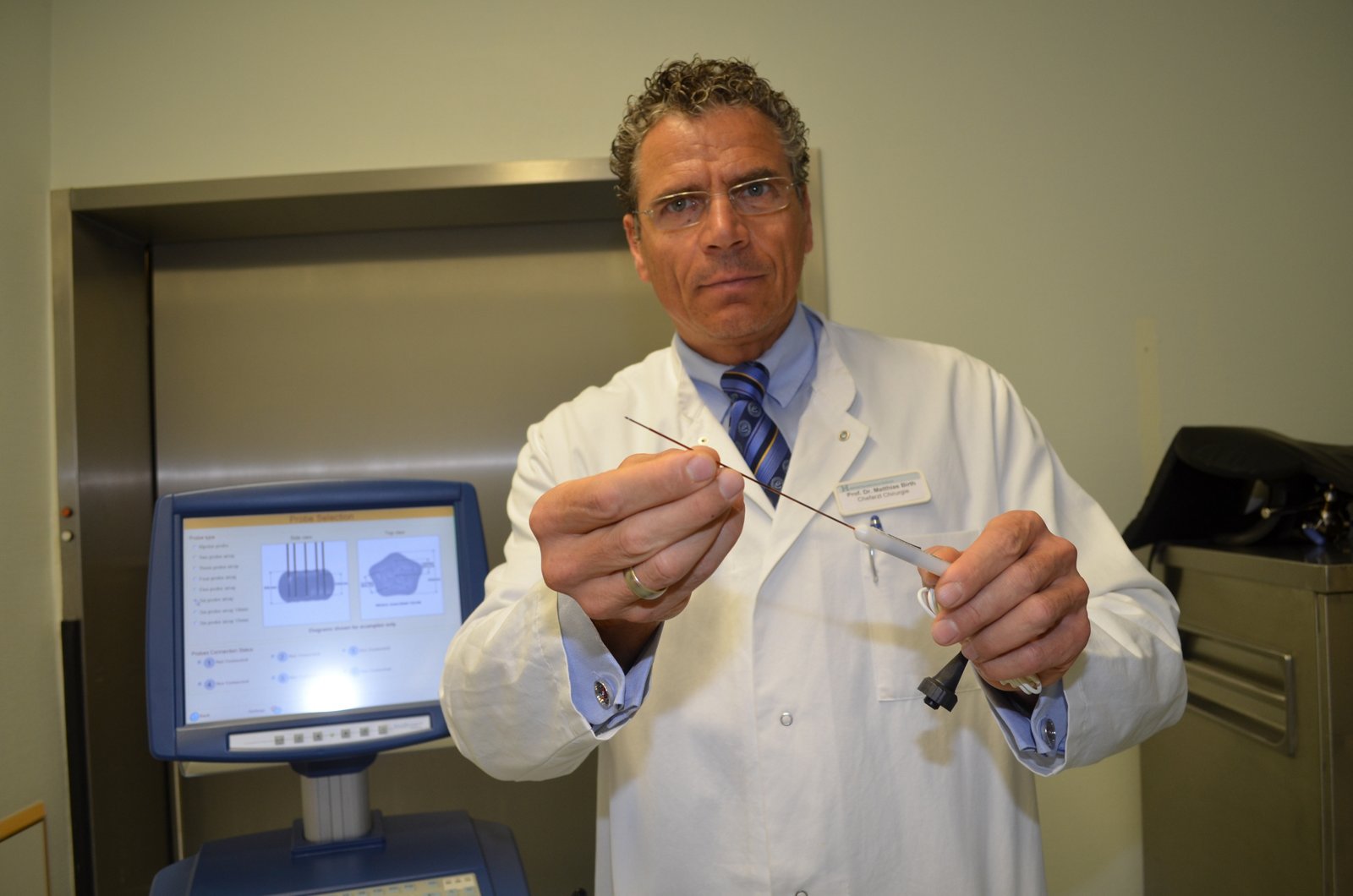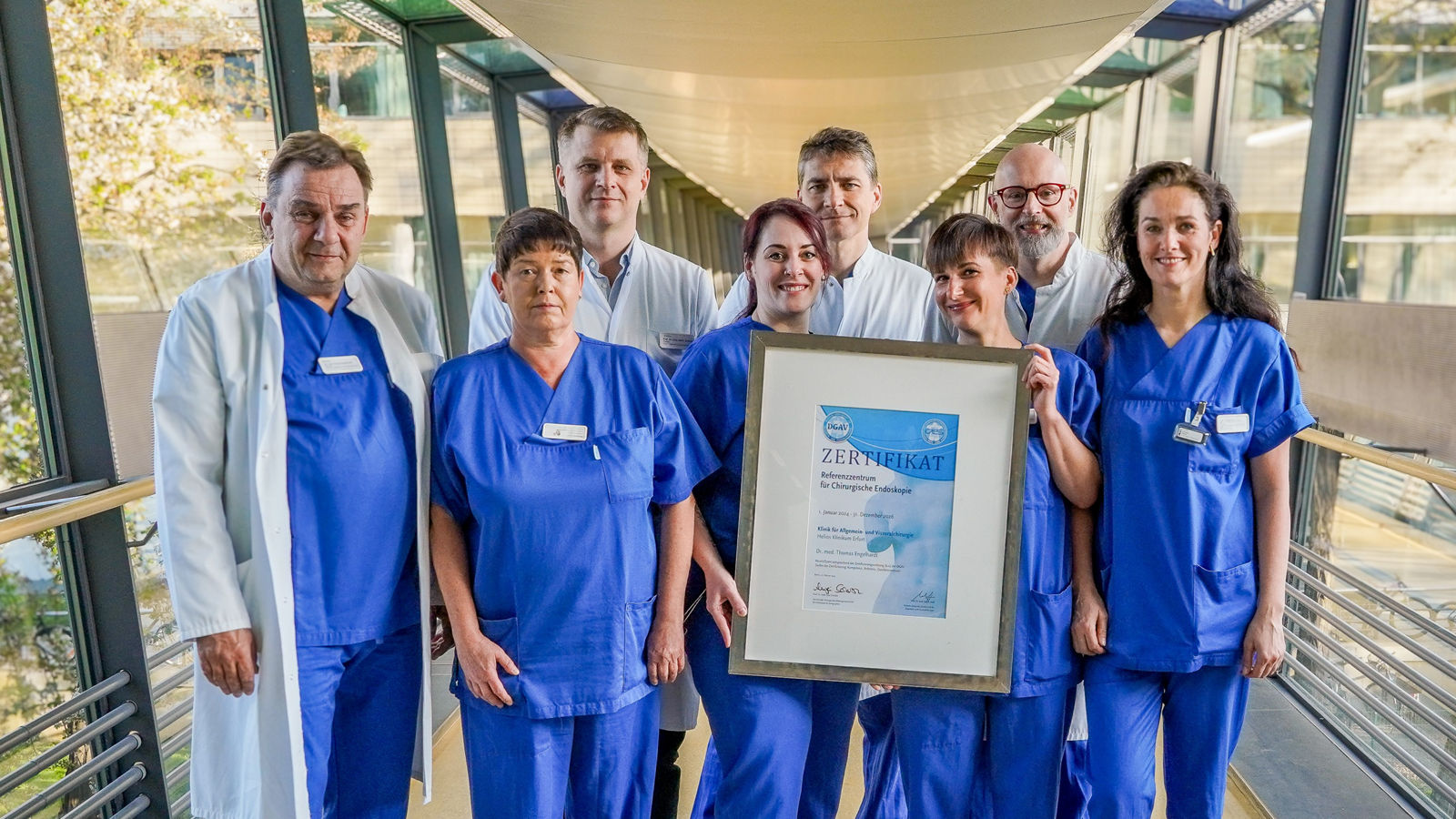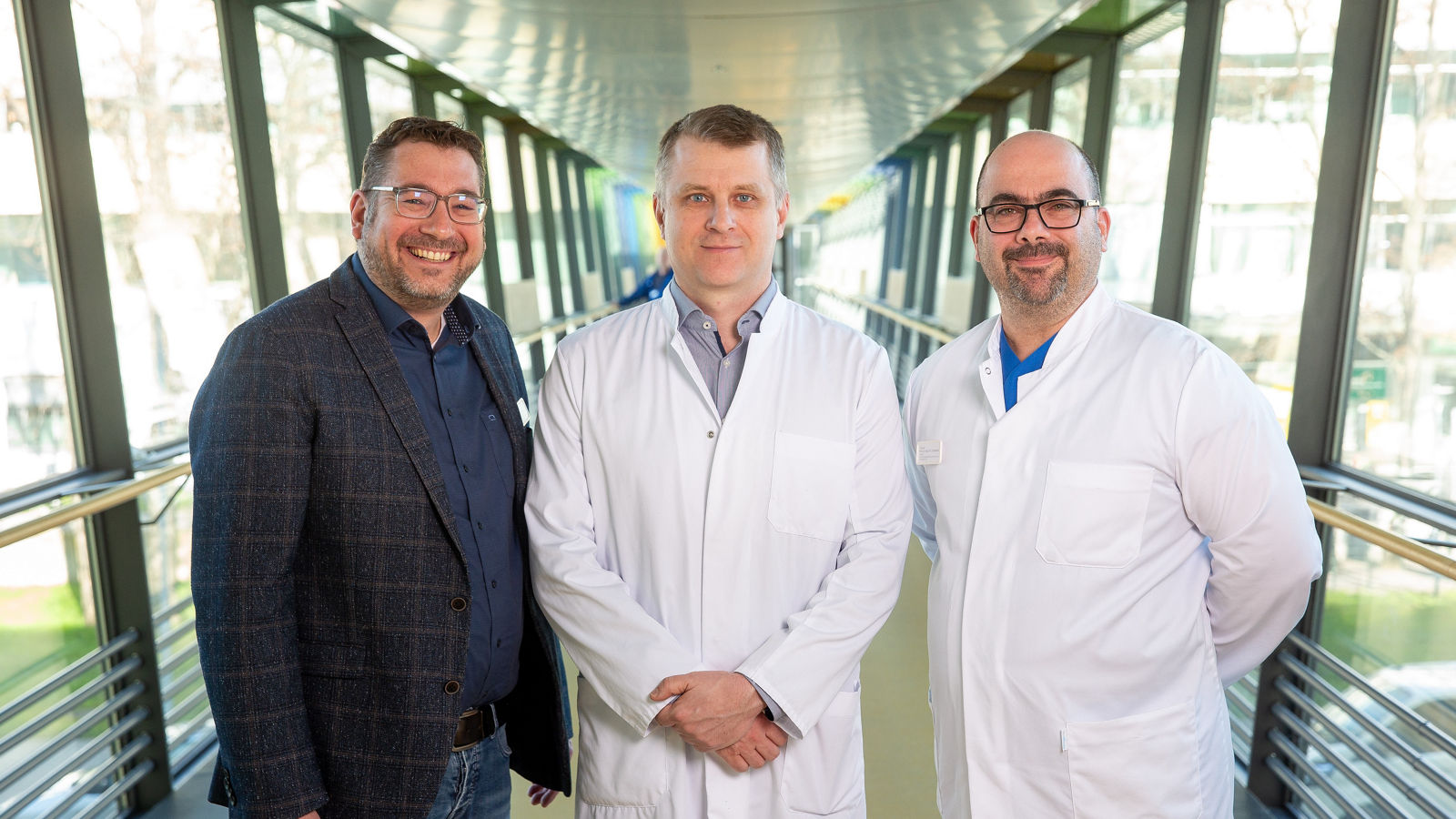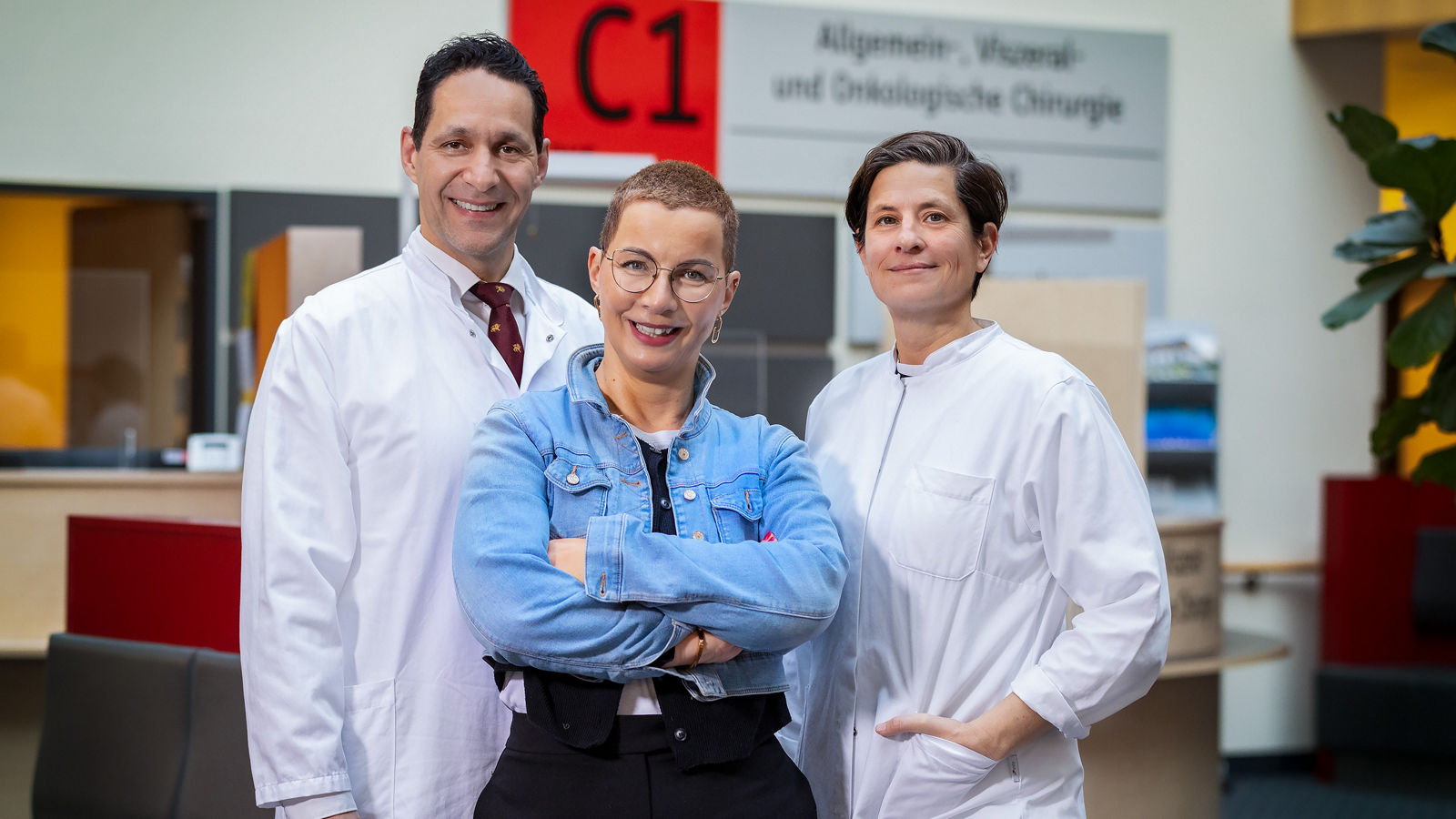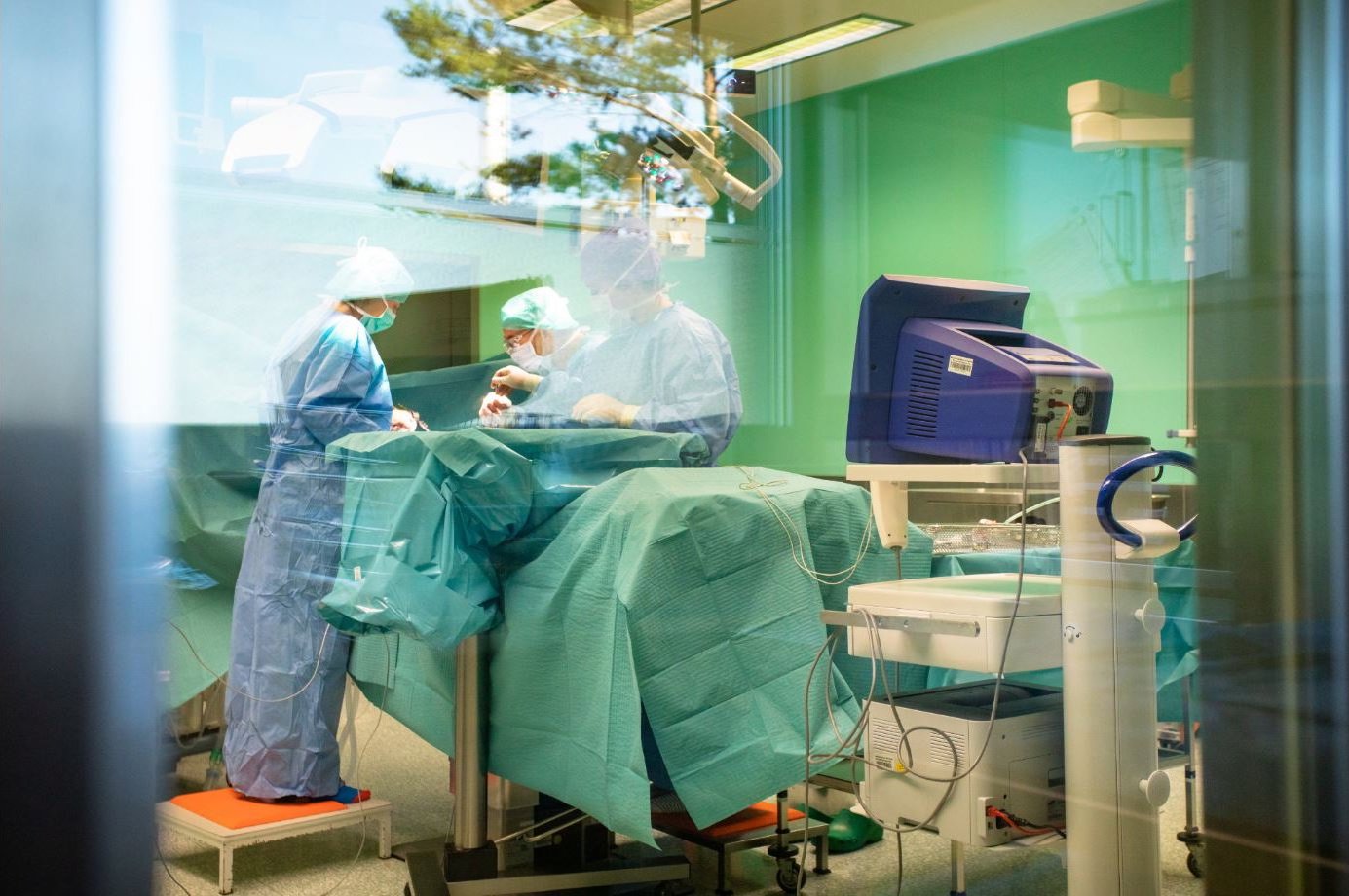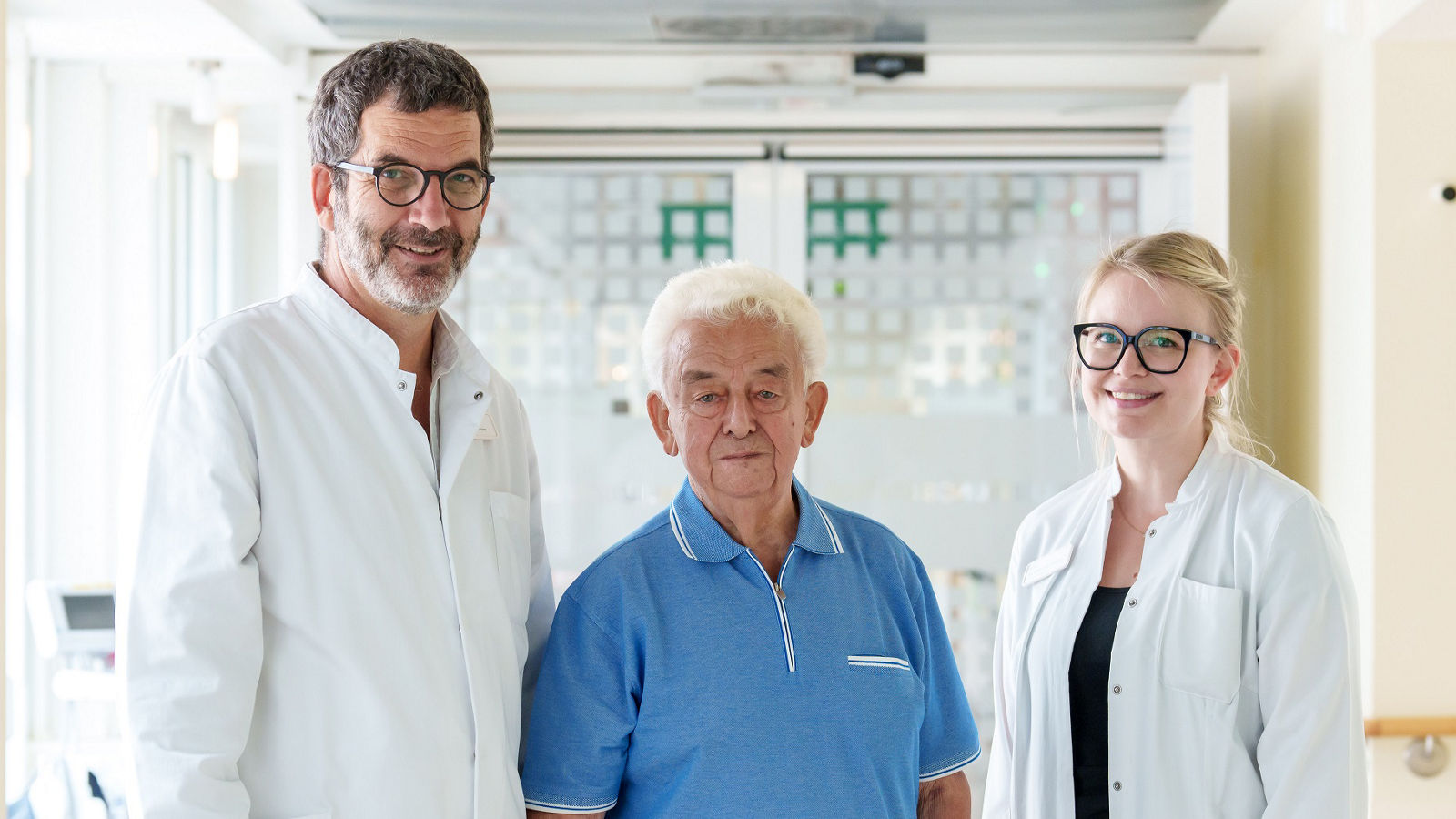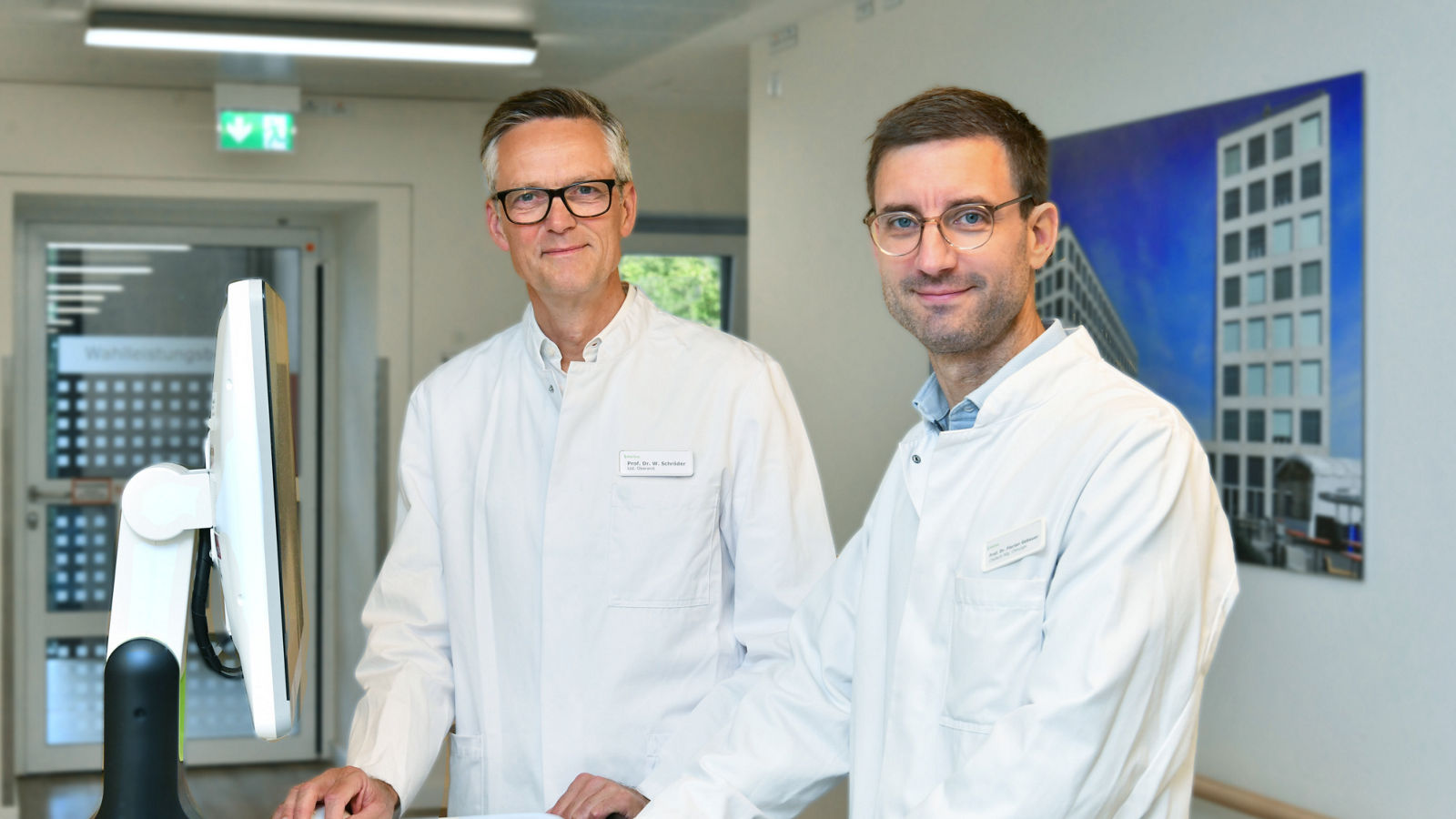
Helios Krefeld: Modern cancer surgery for rectal cancer
Cancer can also develop in the last section of the intestine, the rectum. These are malignant neoplasms of the intestinal mucosa, which can develop from benign changes (polyps). If these changes occur in the colon, transverse colon or sigmoid colon, they are referred to as colon cancer (colon carcinoma); if they are localized in the rectum, they are referred to as rectal cancer (rectal carcinoma).
Surgery is still the most proven and safest method of curing this tumor. The complete removal of the tissue around the rectum (mesorectum) is of great importance. This tissue contains lymph channels and lymph nodes.
"In order to optimize the surgical conditions, it can be useful to pre-treat the tumour before the operation, usually with a combination of radiation and chemotherapy. This increases both the chance of achieving a better healing rate and the possibility of preserving the sphincter muscle,"
explains PD Dr. med. Christoph Wullstein, Head Physician at the Clinic for General, Visceral and Minimally Invasive Surgery at Helios Hospital Krefeld.
Operations on the rectum are very demanding due to its special anatomy. Surgical treatment pursues several goals: The leading objective is tumor radicality, i.e. the complete removal of the tumor including the adjacent lymph nodes, with the best possible outcome for the patient. It is equally important to operate in a function-preserving manner and to maintain sphincter, bladder emptying and sexual function. In addition to maximum precision, this requires a great deal of experience and surgical expertise. "That's why it's essential to have a medical focus on rectal cancer within a certified colorectal cancer center," says Dr. Wullstein. However, there are also tumors that grow into the sphincter muscle, meaning that it cannot be preserved in these situations for medical reasons.
Maximum precision, extensive experience and expertise
Overall, the treatment of rectal cancer has developed significantly in recent years: The standardization of surgery and the introduction of minimally invasive techniques have brought survival benefits for those affected. The establishment of centers has brought further advantages. For example, the probability of recovery is now demonstrably higher if these tumors are treated and operated on in a certified colorectal cancer center. This development has also had a positive impact on the rate of artificial bowel outlets.
"Individual support, precision and gentle techniques, as well as continuous independent external reflection and further development of treatment quality are crucial,"
says Dr. Wullstein, summarizing the development.
Minimally invasive surgical techniques and, increasingly, robot-assisted procedures have further improved cancer surgery and are also much gentler than the open surgical procedures of the past.
"As a large and specialized center, we can already look back on more than 1500 minimally invasive bowel operations. We currently perform more than 90 percent of all planned bowel operations using this gentle technique."
says Dr. Wullstein.
This is not a matter of course. In Germany, less than 50 percent of those affected currently benefit from it, although it has been scientifically proven that this method guarantees a better recovery rate.
Getting through therapy well with ERAS
Treatment during surgery has also changed for the better. With special concepts such as the ERAS program (Enhanced Recovery After Surgery), specially trained nursing staff, physiotherapy and numerous special therapy modules make it much easier and quicker for patients who have just undergone surgery to overcome the debilitation caused by an operation. Helios Klinikum Krefeld is one of the first five certified ERAS centers in Germany. In addition to the pleasing developments in operations, further therapy concepts are currently being developed which may even make it possible to dispense with surgery for very carefully selected cancer patients.
Preventing bowel cancer - as is so often the case, the first step is crucial
Colorectal cancer is avoidable in many cases if early detection and preventive measures play a central role. They can help you stay one step ahead of this insidious disease. From the age of 50, it is possible to take advantage of early detection examinations for bowel cancer. The earlier the cancer and its precursors are detected, the greater the chances of a cure.
When people talk about bowel cancer, they usually mean malignant tumors - also known colloquially as tumors - in the large intestine or rectum. Cancer in the small intestine is very rare. The progression of bowel cancer is gradual.
"The family doctor plays a key role at the beginning," explains Dr. Christoph Wullstein, head physician at the Clinic for General, Visceral and Minimally Invasive Surgery at Helios Hospital Krefeld. "He must correctly interpret the warning signs, such as a change in stool, and order a colonoscopy as quickly as possible. If the suspicion is confirmed and the patient comes to us, the aim is to support and guide the patient through the treatment. The realistic and often quite good perspective helps here. At the same time, it is important to act quickly, because the right treatment concept can make the difference between life and survival at this stage. As is so often the case, the first step is crucial."
Read more:
Do you need more information about Helios Hospitals or want to schedule your treatment?



